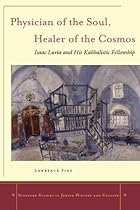

Pontius Pilate is one of the most enigmatic figures in Christian theology. The only non-Christian to be named in the Nicene Creed; he is presented as a cruel colonial overseer in secular accounts; as a conflicted judge convinced of Jesus's innocence in the Gospels; and as either a pious Christian or a virtual demon in later Christian writings. This book takes Pilate's role in the trial of Jesus as a starting point for investigating the function of legal judgment in Western society and the ways that such judgment requires us to adjudicate the competing claims of the eternal and the historical. Coming just as Agamben is bringing his decades-long Homo Sacer project to an end; Pilate and Jesus sheds considerable light on what is at stake in that series as a whole. At the same time; it stands on its own; perhaps more than any of the author's recent works. It thus serves as a perfect starting place for readers who are curious about Agamben's approach but do not know where to begin.
#1070237 in Books Stanford University Press 2003-04-02Original language:EnglishPDF # 1 9.00 x 1.10 x 6.00l; 1.44 #File Name: 0804748268504 pages
Review
1 of 1 people found the following review helpful. Luria Lured Many Into Mysticism- In A Good WayBy thirdtwinFascinating study of a major figure in mysticism. His ideas still resonate today and are worthy of further study.0 of 0 people found the following review helpful. Five StarsBy Dr. David Shlukersuperb68 of 79 people found the following review helpful. Rich; wide-reaching; but somewhat unsoundBy CustomerMostly sympathetic overview of Lurianic kabbalah; theory and early history; drawing from a wide range of sources. Fine blends philosophical and sociocultural analyses together to paint a richly textured picture of the Arizal (R. Yitzchak Luria) and his disciples. The Arizal was phenomenal thinker; integrating many different approaches into a compelling and beautiful mystical system. His chief disciple R. Chaim Vital; while brilliant in his own right; comes in for criticism in this book for his apparent narcissism and inability to get along with his peers. I'm not sure Fine's criticisms in that regard are entirely fair; however; because the dynamics of the situation R. Vital was in at that time are interpretable in other ways. Another point which appears to me to detract from this book is that Fine does not bring an impartial view with him to the material. Fine has bought Scholem's polemical thesis about an alleged opposition or incompatibility between kabbalah and halachic Judaism. Like Scholem; who was a self-confessed "religious anarchist;" Fine brings highly selected quotations to support this thesis; while downplaying the some of the central tenets of kabbalah. Since the days of the Rabbis of the Talmud (and even prior to them); who were deeply immersed in Merkavah mysticism; almost all of the leading halachic authorities in Judaism have also been the leading kabbalists of their generations. Far from opposing halachah; kabbalists throughout history have been especially supportive of it and exacting in their observance. This is no coincidence; since kabbalah may be best understood as a sort of mystical commentary and apologetic for halachah; advanced to bolster and enrich halachic practice. Although Fine's support for Scholem's biased thesis renders his other conclusions somewhat unreliable as well; the good in this book still far outweighs the dubious in it. This said; the above points make me reluctant to recommend the book to those who are not already familiar with kabbalah.